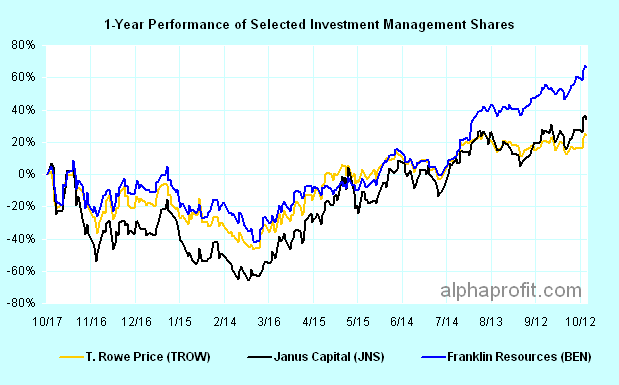Stocks have recently made new 2009 highs. Volatility has declined. As confidence in the economy and financial markets improves, initial public offerings are increasing. The pace of corporate transactions is picking up as well.
A surging stock market and rising capital market activity are often good for firms in the investment management business. Yet, large financial services firms are busy shedding their asset management units.
Just in the third quarter alone, Bank of America (BAC) sold most of Columbia Fund Management to Ameriprise Financial (AMP) for $1 billion. American International Group (AIG) sold its asset management business to Hong Kong-based Pacific Century for $500 million. Lincoln Financial (LNC) sold Delaware Management to Australia’s Macquarie Group for over $400 million.
These transactions follow Barclays (BCS) divestiture of Barclays Global Investors to BlackRock (BLK) for $13.5 billion earlier this year. And, the trend is by no means over. Currently, Morgan Stanley (MS) is reported to be seeking a buyer for its Van Kampen mutual fund unit.
Why the rush to sell investment management businesses? There are a few reasons:
Need for Capital: The financial services industry lost nearly $1.2 trillion in the global financial crisis. Many large institutions needed the government’s support. Regulators have required several financial institutions to raise capital. Proceeds from the sales of asset management firms enable large financial services firms to shore up their capital base and repay the government.
Neglected Business: Being unsuccessful in drawing good investment management talent, large financial institutions have failed to attract money into their mutual funds and grow the asset base. These failings make them see their asset management units as non-core businesses.
Buyers Market in Investment Management
 While the acquisitions game is fraught with risk and many acquisitions end up destroying value for acquirers, the purchase of asset management businesses has a good probability of working well for buyers. Why?
While the acquisitions game is fraught with risk and many acquisitions end up destroying value for acquirers, the purchase of asset management businesses has a good probability of working well for buyers. Why?
The pressure on financial services firms to jettison asset management businesses is enabling buyers to acquire them at attractive prices. Ameriprise for example is paying just 7-times annual earnings before interest, taxes, depreciation and amortization (EBITDA) for Columbia Funds. Additionally, these acquisitions are helping buyers cost-effectively grow their business.
Profiting from Divestitures of Investment Management Businesses
With buyers better positioned than sellers, stocks of investment managers offer a way for investors to profit from the financial crisis. Franklin Resources (BEN), T. Rowe Price (TROW), and Invesco (IVZ) represent three large cap asset managers. In the mid-cap space, Janus Capital (JNS) and Legg Mason (LM) merit attention. These firms have the possibility of creating value by acquiring asset management businesses when large financial services firms divest.
Mutual funds and ETF investors can look to products like Fidelity Select Brokerage & Investment Management (FSLBX), SPDR KBW Capital Markets (KCE), and iShares Dow Jones US Broker-Dealers (IAI). While none of the bundled products is a pure-play, both KCE and IAI have a fair share of asset management firms among their holdings. Investors looking for global exposure will find FSLBX more in line with their preference. FSLBX has 25% of its assets invested overseas.

 Sick buying high & selling low? Fed up of the fees you pay? Tired researching investments? End your financial pain now. You have the opportunity to
Sick buying high & selling low? Fed up of the fees you pay? Tired researching investments? End your financial pain now. You have the opportunity to 


 DEC. 1993 to DEC. 2023
DEC. 1993 to DEC. 2023





